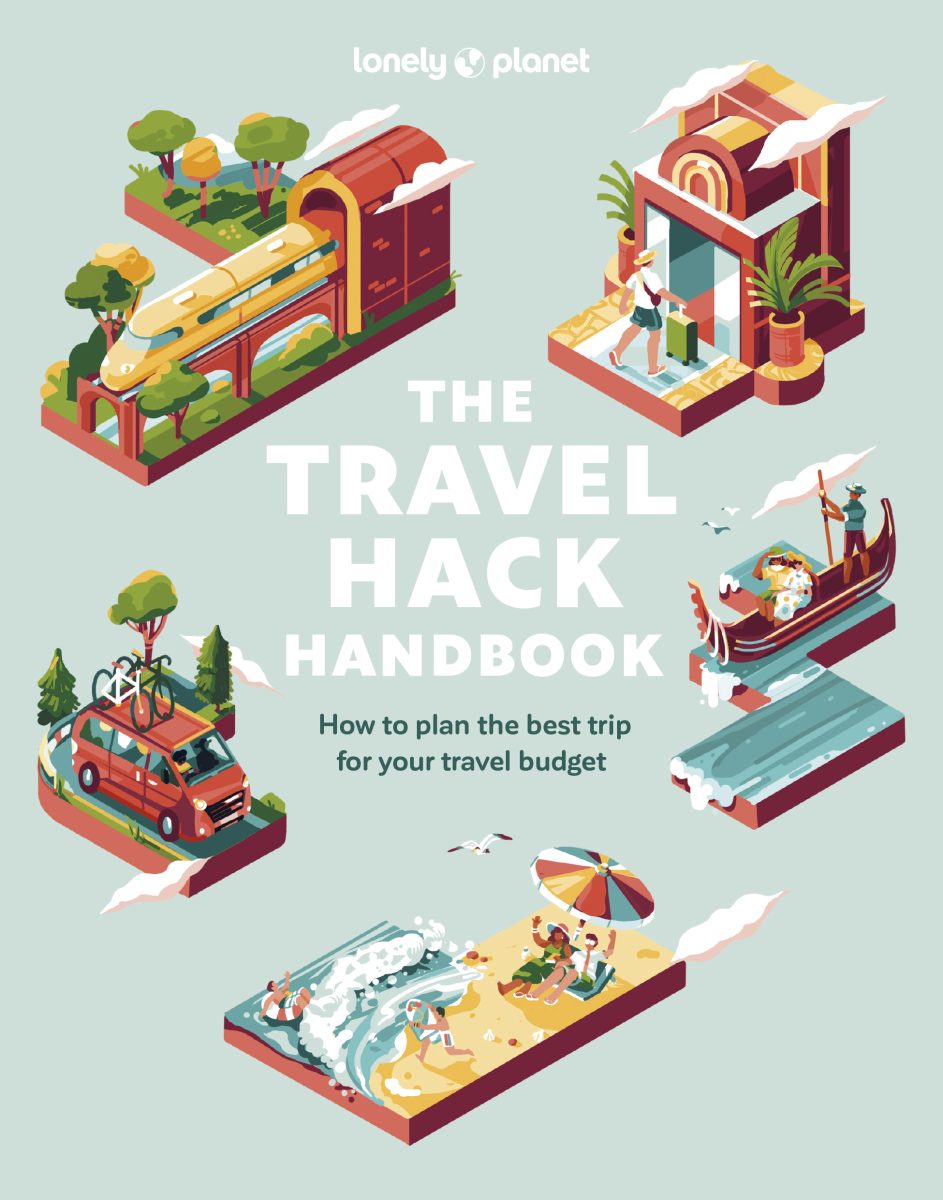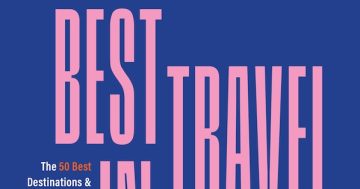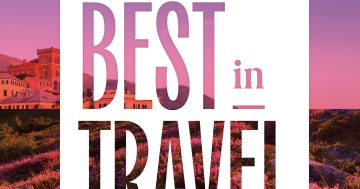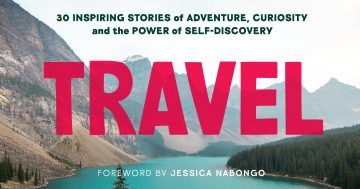
Lonely Planet’s The Travel Hack Handbook shares smart hacks and insider secrets in the ultimate guidebook. Photo: Supplied.
After publishing guidebooks for more than five decades, Lonely Planet has become something of an authority on travel. Lonely Planet’s The Travel Hack Handbook is an essential addition to your bookshelf.
Colourfully illustrated, with copious hints, this guide is a treasure trove of inspiration for your next adventure. With many invaluable tips and one must-have packing inclusion, The Travel Hack Handbook shares smart hacks and insider secrets in the ultimate travel hack manual. We all want to know more about how to plan the best trip for our budget – and turn it to our advantage.
Among the tips are the best time to book a flight, to advice for snaring an upgrade – and why you should always pack a sarong!
A surprising fact shared by the travel professionals at Lonely Planet is the item they always take away – a simple sarong.
“Always pack a sarong or shawl,” they write. “It’s a blanket when the air-conditioning is icy. It’s a sheet if you need an extra one. It’s an emergency towel. It’s privacy for getting changed on the beach. It’s modesty when you can’t enter a temple with your legs or shoulders showing.”
Whether you’re planning a short getaway or a long-haul adventure, The Travel Hack Handbook is your go-to resource for maximising your finances and making the most of every trip.
Discover the best hacks that not only save you money, but also enhance your journey. As costs rise, saving money is on everyone’s mind, and this manual allows you to travel smarter and cheaper, feel fresh and enjoy the journey.
Industry experts cover it all with advice from pre-departure checklists to ethical spending and scam avoidance. Get the lowdown on getting there and getting around. Save on transport and accommodation, indulge in local cuisine and handle practicalities seamlessly. While exploring the world, learn how to give back to local communities and reduce your carbon footprint.
You should aim for an upgrade. The book explains that airlines give priority to frequent-flyer club members with healthy points balances or people with injuries, such as a broken leg, but it adds: “Dressing smartly, asking politely and arriving early will increase your chances. If the airline asks for volunteers to be bumped onto a later flight, see if you can get an upgrade as part of the deal. Upgrades are a solo traveller’s game – nobody gets an upgrade for the whole family.”
This handbook is “serious” when it advises against eating rice.
“Reheated rice can be a gamble, as some of the bacteria that grow on rice create toxins that are not destroyed by heating.”
Sure, eat where the locals eat, but take note: “It’s easy to spot the best places to eat, they’re packed out with locals rather than tourists and there’s a queue every mealtime. Often the menu and sign will be in the local language, so be ready to order by pointing to what you see displayed on the counter or other patrons’ plates.”
Avoid motion sickness. If you’re prone to travel sickness, says the book, “get a window seat between or forward of the wings, for maximum stability”. It adds: “Don’t eat salty, oily or spicy foods, avoid reading or using screens, turn on the overhead air vents and carry Dramamine (or ginger) as a fallback option.”
We should be ready to travel smart all the time. All of us want to get the best out of every trip, but there’s more to smart travel than just finding the cheapest prices. Savvy travellers don’t just pay less, they get more – more rewarding journeys, more once-in-a-lifetime experiences, more memorable meals, more surprising stays, more cultural immersion, more wildlife encounters – giving more back to local communities and cutting carbon costs along the way.
The best travel hacks make travel easier and help you get the best value for money. For example, an overnight train ride saves you the cost of a night’s accommodation and a day of travel time, but it’s also one of the most immersive travel experiences, a chance to see the country through the eyes of its people, in a way that wouldn’t be possible on an organised tour.
This comprehensive guide answers all your questions about being economical and more discerning. Travel hacks are not one-off tips, they are a way of life.
Lonely Planet: The Travel Hack Handbook, $29.99






